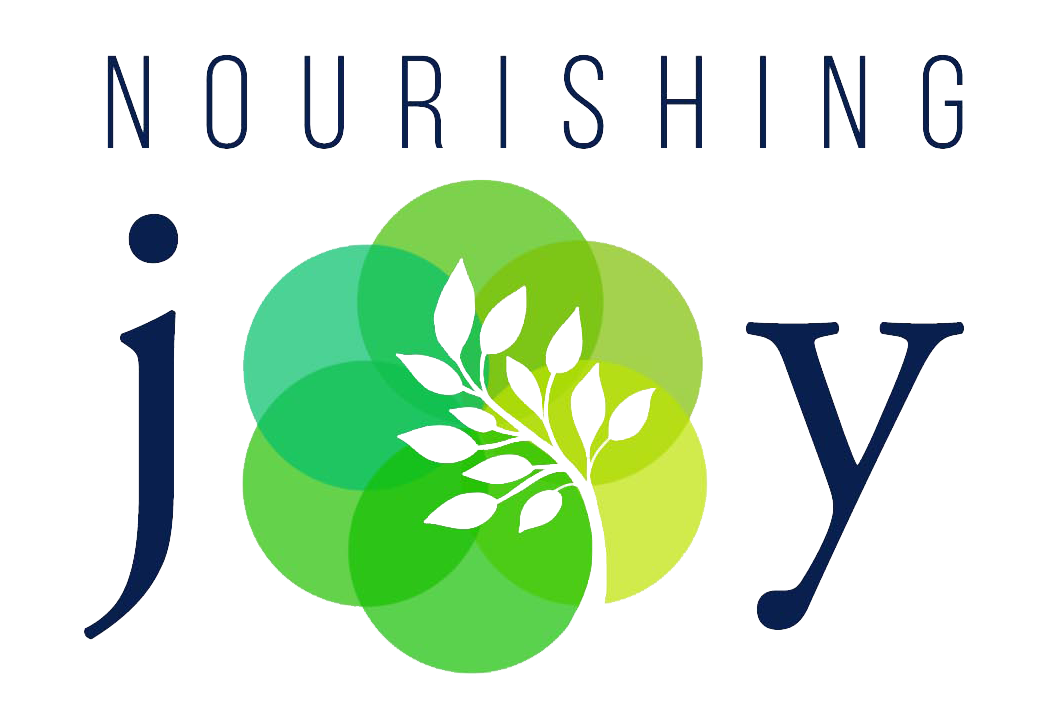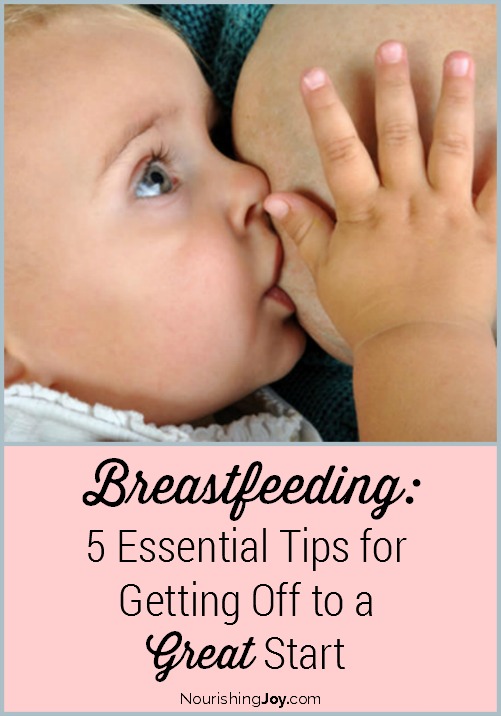Breastfeeding: Tips for Getting Off to a Good Start
This post may contain affiliate links, including those from Amazon.com, which means we earn a small commission off your purchases. And here's the thing: We only mention services and products that we think are truly worth your attention, whether they're free, paid, or otherwise. This site relies on YOUR trust, so if we don't stand behind a product 110%, it's not mentioned. Period.
I always assumed breastfeeding would be as easy as… well, offering the breast to the baby and he or she would know what to do. Turns out it's not quite that intuitive…
It may not be as easy as it seems, but it is SO worth the extra focus and intentionality. Here are a few tips to help nursing mothers get off to a good start (whether it's your first or your sixth).
Breastfeeding Is About Nourishing Your Baby – Nutritionally and Emotionally
Allow ample time for a feeding. When it comes down to it, the only thing that will ensure a good supply of milk is actually emptying the breast. Everything else merely helps to encourage the baby to drink heartily and actually empty the breast. So give yourself plenty of time to feed the baby, let him or her “hang out” on one side past the time when you think the breast is empty to encourage the milk ejection reflex to kick in and let down extra milk. This will not only thoroughly empty the breast, but it will ensure your baby gets a lovely, extra-creamy meal.
Don't skip the night feedings in the early weeks. In the first 2-6 weeks of life, your baby should be getting a full feeding every 3-ish hours. This not only helps your baby gain weight healthily, but it will ensure the best supply you can offer. Don't let yourself go longer than four hours without a feeding – if you can't bear to wake up a baby that is sleeping well, pull out your breastpump and pump for that feeding. If your baby is struggling to gain weight, you'll also want to make sure the baby gets all the milk that was pumped once he or she awakes.
Be patient with yourself and with your baby – you're learning how to work together. Before I had my first baby, I thought intuition and instinct would kick-in and we would both know what to do. I scoffed at the breastfeeding class that my husband and I were required to attend. However, it took time to settle in to get good feeding patterns established and I must admit, I succombed to frustration most of the time. Patience is a wonderful friend in those early days and will help you settle in quicker.
Eat well, drink well, and sleep well. I know this is cliché and (let's admit it) it's darn difficult to sleep well with a newborn around. However, eating nutrient-dense food, drinking enough water to keep your pee a light yellow, and getting plenty of sleep DO indeed make a difference in how much milk you produce. Do what you can to keep your body working optimally.
Educate yourself ahead of time on the basics. If you watch videos, read books, or observe other breastfeeding moms ahead of time, you'll know what a good latch looks like, what it sounds like when a baby is swallowing milk, the difference between drinking and suckling, and various ways to hold a baby while they drink. These basics will help you know when you hold your own baby if he or she is actually getting milk and if he or she is drinking efficiently (and thus actually draining your breast). I had to cut short nursing my first child because I spent weeks thinking she was drinking when she was actually only suckling and getting very little milk – and thus my supply suffered significantly.
Ask for help if you need it. It is common for new moms (and even veteran moms) to have questions while they settle in with a new baby. There are lots of unique situations when it comes to breastfeeding: unusual nipple shapes, tongue tied infants, feeding multiples, feeding after a C-section, too much milk, not enough milk, etc etc etc, and an experienced lactation consultant or midwife can provide little tips that make all the difference. Even if you pride yourself on being an intelligent, well-educated mom and assume you shouldn't need help (I'm pointing squarely at myself here), seeking out a knowledgeable professional can ensure the best health of your child and a long nursing relationship with your child. Find your local La Leche League chapter to be connected to a wealth of breastfeeding resources in your area.
Invest in a good pump or learn how to efficiently express by hand. Whether you pump to up your milk supply or just to stock the freezer in case of emergency, a good pump is an excellent tool to assist in your breastfeeding journey. There are many varieties available, so decide what your needs are and purchase one accordingly.
Use galactagues and eat lactogenic foods if there is any doubt about sufficient supply. There are a number of herbs and foods that help boost the milk supply and in the early weeks these can be helpful for while you're establishing your supply. Motherlove offers lots of herb options and I have found two books particularly helpful in this regard: Mother Food
by Hilary Jacobson and The Breastfeeding Mother's Guide to Making More Milk
by Diana West and Lisa Marasco.
Don't give up until you've tried. To be honest, the first few weeks can be frustrating and exhausting, especially for a new mom. The sore nipples, a baby who falls asleep at feedings, the leaking breasts, surging hormones when your baby suckles – you may feel more like you've been in a car accident than in happy-baby-blissdom. But with a bit of time, the rewards are wonderful and overwhelming, including lots of time to cuddle and adore your new baby. Don't give up until you've given it at least 6-8 weeks. Your baby and your body will thank you for it.






I had a REALLY rough time the first (almost) 3 months of my daughters life. I literally cried before, during and after feedings because of the pain and, well, knowing that again I would soon have to endure the pain for another feeding. But with the help of a great lactation consultant who didn’t give up on me… and thankfully my supportive husband… my daughter NEVER had a bottle and she nursed for over 15 months. Now that I am expecting # 2, I’m hoping for at least a little bit of an easier time at the beginning… but I’m grateful for your article to remind me that it won’t necessarily be that way – but I CAN do it! 🙂 I feel bad for moms who give up too soon. I am a living testimony that it does get better – I hope I can encourage others!
My son is just over a week old. Breastfeeding is going so well that I do find myself needing to wake him during the night just to empty my engorged breasts. When is it ok to start pumping and will it confuse him to offer him a bottle at this time? Should I maybe pump and freeze the milk for now?
Thanks
s
Congratulations on your son! What a blessing. 😉
I wouldn’t offer a bottle at this point – I would just pump and freeze. However, remember that whatever you do right now is telling your body how much to produce, so if you pump to relieve engorgement, it will actually make the engorgement worse because by emptying your breasts, your body is getting the message that it’s not producing enough and will UP production. However, your breasts do need to be emptied regularly, so at this age, I would say, yes, absolutely, if it’s been more than three hours since he fed, wake him to feed him. Both you and he are settling into a pattern and your body needs that stimulation and he needs those calories, especially within the first two weeks. After a few weeks you can relax off those nighttime feedings as you and he settle in, but right now, use any engorgement as a sign to feed him. 😉
That said, if you are becoming engorged within just a couple of hours after a feed, take a warm shower and allow your body to relax. That will likely stimulate a let-down, which will relieve a bit of the pressure. You can even massage your breasts gently to help the milk let-down, but don’t empty them – let your son do that at the next feed and he’ll get a lovely full, creamy meal. 🙂
Wow! Thank you so much for your encouragement and tips on breast feeding! I’m pregnant with my third child and I have tried to nurse my first 2 children but I never made it past 4 weeks and half way through I started doing breast and formula. My girls just kept falling asleep during nursing! Do you have any suggestions on how to keep baby awake to feed? Also I never knew there were foods that helped produce more milk beside just taking in more fluids!
Oh, I totally hear you! Be sure to try a number of different foods and herbs, as different things work for different people – definitely keep trying! 🙂
As for keeping baby awake, perhaps try feeding before they’re sleepy, like right when they wake up. Also, stroking their cheek or their feet, stroking the breast downward to get a sudden squirt of milk, trying a more upright position – there are various ways to try to keep a baby awake, but I know how hard it can be! 🙂
The best to you!!!